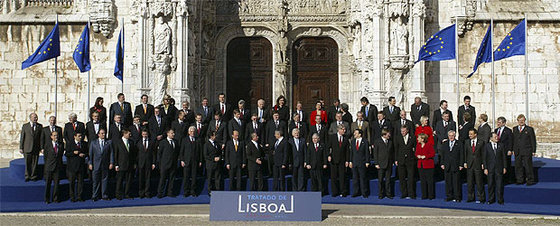In mid-December 2020, after almost four years of on-off negotiations, agreement on a joint transparency register, also colloquially known as a lobbying register, was announced. But the deal stretches the definition of mandatory beyond normal uses of the word, Emilia Korkea-aho argues.

Amidst the coronavirus chaos, the US presidential transition, concerns over Brexit and the rule of law conditionality mechanism tied to EU COVID-19 recovery funds, only the most devoted EU law and policy followers realised what the EU institutions achieved in mid-December 2020. After almost four years of on-off negotiations, agreement on a joint transparency register, also colloquially known as a lobbying register, was announced. The three institutions’ negotiators reached the goal (although the provisional agreement is still pending the approval of the institutions) in a process that began in September 2016 with the publication of the Commission’s proposal.
This agreement, the timing of which may suggest comparisons to wishful New Year’s resolutions, did not create a register. A public database for interest representatives or, put more simply, for lobbyists seeking to influence EU decision-making has been in place since 2011 when the European Parliament and the Commission jointly set up the register. The two institutions offer the database infrastructure for the lobbyists to disclose information about their lobbying activities. Lobbyists (making up, in January 2021, over 12,000 registrants) sign up to the register, provide basic information, and report annually on which issues they have lobbied and with what budgets. It is by far the world’s largest lobbying register. However, it has not been the most successful one. The register is riddled with loopholes, and the data it contains is inaccurate and incomplete. One loophole has been its institutional scope. Of the three EU institutions, the Council of the European Union, has never been part of the register. While the European Parliament is a founding member, its participation in the transparency register has been half-hearted, leaving the Commission to claim the EU transparency championship.
The EU’s is by far the world’s largest lobbying register. However, it has not been the most successful one. The register is riddled with loopholes, the data it contains is inaccurate and incomplete.
The December agreement is, however, akin to creating a new register in the sense that the register is now, for the first time ever, supported by all three institutions and, at least according to its political midwives, mandatory and a resounding success. Initial reactions from academia and transparency activists have been less enthusiastic, questioning both how binding it is as well as claims of success on increasing lobbying transparency. While the latter can certainly be disputed, the uncertainty about the former is surprising. Why is there uncertainty with regard to the binding nature of the transparency register?
When the Commission published its proposal in 2016 it was generally referred to as a ‘de facto mandatory register’. The qualifier is nowhere to be seen in the unpublished draft text of the agreement (dated 11 December 2020), which is simply entitled ‘mandatory transparency register’. But calling something mandatory does not make it so. As an instrument, the transparency register is created by an interinstitutional agreement, which is in itself a soft law instrument. Yet the confusion over the nature of the register does not reside in the use of soft law. Soft law can be mandatory in the sense that it limits the options available, and the Commission’s earlier ‘de facto proposal’ captured this logic: if you wanted to carry out certain lobbying activities and ensure that the institutions’ doors remained open, you would have had to register. The root of the present confusion is that despite the title, there is nothing mandatory in the text of the agreement, allowing the institutions themselves to broadly apply whatever rules they want in the agreement and meet whomever they wish.
This issue, which was also referred to as conditionality by those involved in the negotiations, was the one that dragged out negotiations for so long. The Commission has since November 2014 self-committed to meeting only registered lobbyists which, in other words, meant that lobbyists wanting to influence the (high-level officers of the) Commission had to register. The Commission wanted to extend the practice to the other institutions as well. But this did not suit the Parliament and the Council, and the result reflects the mindset of one making a New Year’s resolution: on the surface, the commitments look ambitious, but on a closer inspection beyond the promise of the title, they lack commitment and vision.
Despite the title, there is nothing mandatory in the text of the agreement, allowing the institutions themselves to broadly apply whatever rules they want in the agreement and meet whomever they wish.
According to the compromise text, every institution defines itself what interaction with lobbyists they allow. The Commission that has been leading the pack will do so in the future, too. It continues the established practice of meeting only registered lobbyists. The downside of the continuity is that the Commission did not take transparency further than it has done already. The new agreement offered the Commission an opportunity to require that its policy-level staff is also out of bounds without registration. But it refrained from new transparency openings, perhaps disappointed by the lacklustre efforts of the other institutions.
Much hope was pinned on the Parliament, especially after January 2019 when it amended its Rules of Procedure requiring MEPs serving as rapporteurs, shadow rapporteurs and committee chairs to publish their meetings with lobbyists. Furthermore, rules have been passed to condition entrance to Parliament, invitations to parliamentary hearings, and intergroups of MEPs through the means of prior registration. In the transparency register negotiations, the Parliament, however, dragged its feet. The issue underlying negotiations with the Parliament was the so-called freedom of mandate, the notion which the Parliament interprets as giving MEPs wide discretion to do or meet with whoever they want. The principle remains intact in the agreement, meaning that the agreement does not oblige but only recommends that MEPs meet with registered lobbyists. The recommendation does not apply to assistants and other staff.
The most attention was devoted to the Council, which now joins the existing agreement of the Parliament and the Commission. But here, too, the agreement has limits. The Council’s participation will likely cover (to be defined in a Council Decision) the Council’s secretary-general and directors-general but does not bring in the most obvious lobbying targets, that is, the Member States’ permanent representations. Under the terms of the compromise agreement, Member States may decide to take part through unilateral voluntary measures. The last five EU Presidencies have already applied the rule of meeting only registered lobbyists, and the previous draft compromise included the requirement that would have made meeting of current and forthcoming presidencies conditional on registration. This requirement, which would have applied to them every 13.5 years, was, however, scrapped at the last minute.
The Parliament dragged its feet. The issue underlying negotiations was the so-called freedom of mandate, which the Parliament interprets as giving MEPs wide discretion to do or meet with whoever they want.
This means that those frequently meeting lobbyists, policy staff in the Commission, advisors and staff in the Parliament, and almost everyone in the Council, remain outside the scope of the register. However, this was to be expected. What is disappointing is the institutions’ willingness to signal the creation of ‘a mandatory register’ when it is clearly not one, stretching the definition of mandatory beyond normal uses of the word. In its Q&A of 15 December 2020, the EU Commission reverted back to the old favourite ‘de facto’ when describing what the new agreement means in practice.
A few new rules strengthen the register. Among them are rules on third country lobbying. According to the new agreement, those who lobby on behalf of third countries are no longer exempt from registration. Falling short of a US style FARA (the US Foreign Agents Registration Act), the new rules should reassure those worried over the influence of countries such as China and Saudi Arabia in the EU. The participation of the Council means changes to the register’s administration. The three EU institutions’ General Secretaries define details, but there is hope that the institutions will allocate more resources to the secretariat to check registrants and the data they supply.
As a process, negotiating the new agreement was not transparent, the irony of which is almost too perfect. Apart from the public consultation and the public debate, both held in 2016, very little meaningful information was proactively given out, and the negotiators were tight-lipped about their institutional sensitivities and internal turf wars. This could not be a simple negotiating technique, as the institutions knew after several years of negotiating where the lines were drawn. So deciding to keep quiet about how each of the institutions interpreted their prerogatives with regard to the transparency register seems a deliberate move to keep the larger audience out of the loop.
As a whole, the completed negotiations are a feather in the cap of Věra Jourová, Vice-President of the Commission for Values and Transparency, as well as of Germany during the chairmanship of which the agreement was reached. There is a lot of well-deserved enthusiasm for accomplishing long negotiations, and any step toward greater lobbying transparency should not be frowned upon. The new agreement is, however, not a step forward. In fact, there is a feeling that the institutions were negotiating on something that was already outdated. One example of the ‘time lost’ is the lack of attention on EU agencies that have developed – while the institutions negotiated the agreement – into fully-fledged EU decision-makers, and it is unfortunate that the agreement does not reflect this. Another example of lost opportunities concerns the entire philosophy on which the register rests. The negotiations revolved around the issue of conditionality, but the progress could have been made elsewhere. The new agreement did not impose new obligations on lobbyists. It could have, for instance, required lobbyists to provide information on officials they meet rather than trying to convince each other of the requirement to meet only registered lobbyists.
There is a lot of well-deserved enthusiasm for accomplishing long negotiations, and any step toward greater lobbying transparency should not be frowned upon. The new agreement is, however, not a step forward.
Finally, the New Year’s resolution style of the new agreement is disappointing from the perspective of Member States. It is true that the Commission and Parliament already go further than many national governments and parliaments in lobbying transparency. But it is for this reason why many of them, now interested in creating more transparency around lobbying, look to the EU institutions for inspiration. But the new agreement offers little for aspiring national lobbying regulators. Lobby monitoring tools in the European institutions are among the most advanced in Europe, but even the most state-of-the-art equipment is of little use if it lays still gathering dust in the cupboard or its owner does not know how to use it to maximum effect.
Emilia Korkea-aho is Associate Professor of EU Law and Legislative Studies at the University of Eastern Finland and Academy of Finland Research Fellow. Her research interests cover governance, in particular soft law, in the EU and national contexts, as well as lobbying and its regulation.
This blog appeared earlier on EU Law Live.


